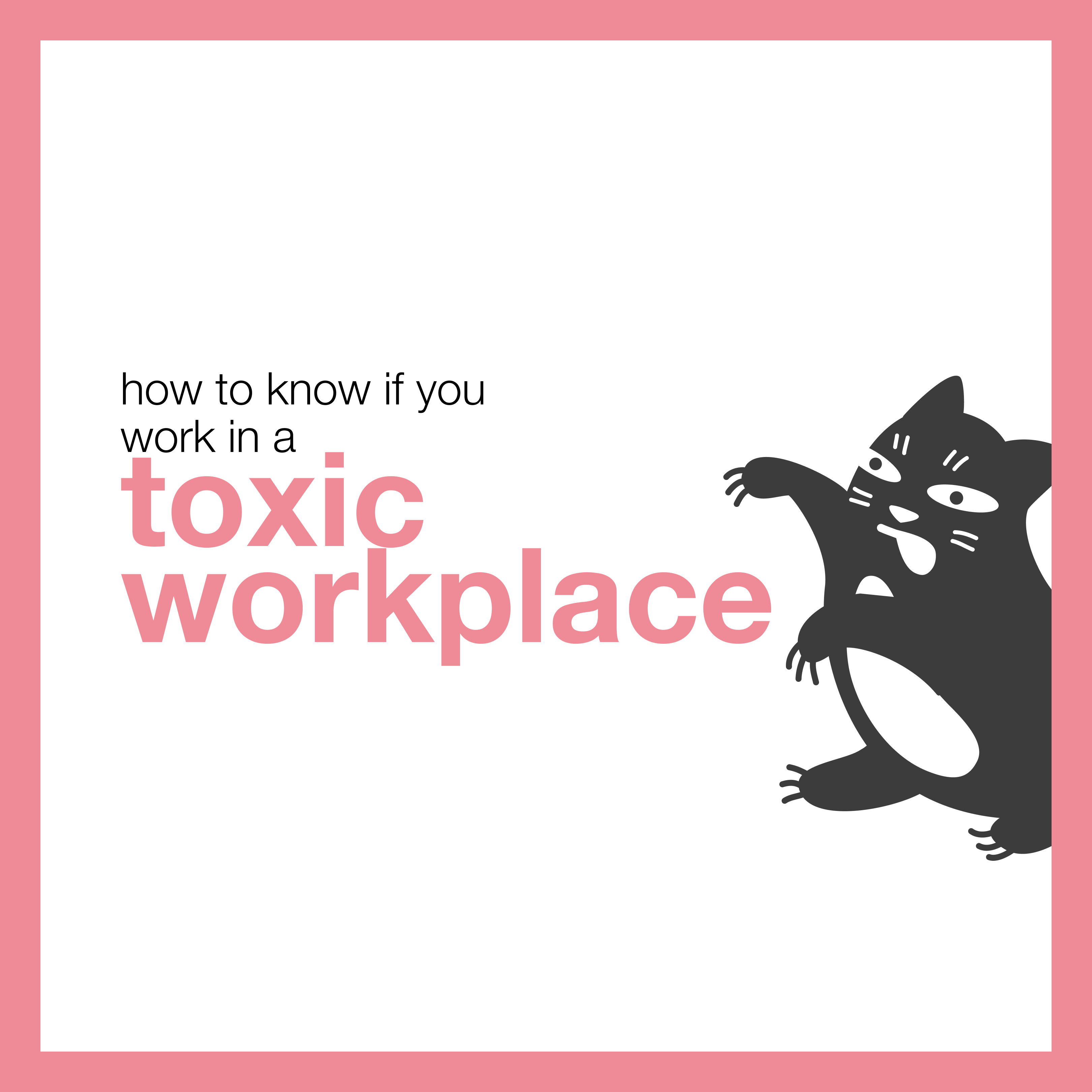A toxic work environment can be harmful to your well-being as chronic low-morale, and bad bosses can be detrimental to your self-esteem, mental health, and even your personal life. A crap company culture will invade your work-life balance and potentially make it harder for you to move ahead in your career.
Let's dive in.
Signs of a toxic work environment
Are there ways to identify toxic workplaces during the interview process so you can make sure to avoid accepting a new job from hell? Is your work environment toxic? How can someone identify that they might be working alongside toxic team members? What are some obvious red flags?
High turnover rate
A great question to ask human resources during the interview process is about your potential employer's turnover rate. How long has the average employee been at the company? What are the most common reasons for leaving? A high turnover rate is a common red flag of toxic employers. People vaguely claiming to be burnt out by the job or leaving for 'personal reasons' could be suffering from some form of low-morale or toxic environment.
Infighting
Hearing that Sally is unable to work with Sam and that Paul can't stand Peter? In a normal, healthy workplace, there are no rivalries or bitterness between team members. Of course, small spats can happen at any place, even in the happiest offices, but there should not be enduring issues.
Exclusion
You might've seen the Mr. Mayor episode where they talk about 'relational aggression.' This is the concept of purposeful exclusion in activities; for example, there's a meeting about a project you have domain knowledge about, but a team member doesn't invite you to the conversation because they're a) being cliquey and are excluding you at the expense of their project and/or b) purposely trying to sabotage you.
Lack of accountability
Sometimes things don't get done, and everyone points the finger elsewhere as to why it didn't get done. Going above and beyond is never rewarded because nobody else cares or notices. There's no process for getting something approved or making changes. There's no process for reviewing employee performance and definitely, no systemized way to help an employee improve it.
No work-life balance
Are you expected always to be working? Does your boss email you at 9 pm on a Saturday? Have you seen the sky lately? If your answers are: Yes, Yes, No – your workplace is toxic.
The fish stinks from the head: what does a bad boss act like?
Do you have toxic co-workers, or is your boss the worst? Sometimes, a lack of cohesive vision and values from a company's leadership might be causing everyone below them to act like maniacs.
Poor leadership
Poor leadership can manifest in a few different ways. Maybe your boss is someone who micromanages every employee or doesn't manage at all. Both extremes can cause an unstable work environment.
Poor leadership, no matter what, goes hand-in-hand with poor communication. Being unclear about your boss' priorities or not being informed if their priorities shift is pretty much a ticking time-bomb. If you don't know what you're working towards, how will you ever get there?
On the other hand, hearing every opinion from every management member might give employees whiplash and cause them to return a type of Frankenstein work that attempts to please everyone and ends up making no one happy.
Favoritism
Some bad bosses have obvious favorites in their workforce. This can be damaging, as that 'golden employee' gets raises, bonuses, and put on the 'best' (i.e., most high-profile) projects at the company. All those rewards will likely keep that employee performing well but is demoralizing to others who would've loved a chance to shine or feel like they're being underpaid.
Or, you might be stuck in a truly toxic work environment where the boss' favorites actually do less work than others but get away with it because leadership looks the other way.
Poor communication
Lack of communication is one of the quickest ways for a company's culture to go belly-up. Clarity and honesty need to be baked into every interaction at work (not just with management) to stay productive, prevent exclusion, keep team members accountable, and avoid infighting. It's hard to practice this, and it's gotten a lot harder lately as so many of us have gone remote during the COVID-19 pandemic. But whether at the water cooler or over Zoom, leadership should be doing their best to be talking about what we're working on and why it's important.
This communication should go both ways; your boss should be able to communicate their expectations to you, and you should feel safe telling them that you'd prefer them to email instead of calling your cell phone when they want to give you notes on a presentation on a Saturday afternoon.
How to get out of a toxic workplace
If you're reading those signs of a toxic workplace and nodding your head at each one, you need to start thinking seriously about why you're still at your job and what you should be doing next.
Our best career advice is this: get out of that place. You need to develop an exit strategy because no job is worth a toxic workplace. It might be your dream gig, but start looking for something similar someplace else because long-term, toxic cultures will not lead you to the skills that you need to acquire to continue rising in your field. In fact, that dream gig might cause you to abandon your dream.
Until you find another gig to jump to, of course, you should be able to talk to your HR department. Try to bring evidence of tangible, fact-based situations of infighting, exclusion, poor leadership, or lack of communication and connect those events to how they've caused decreased morale or productivity.
